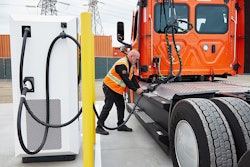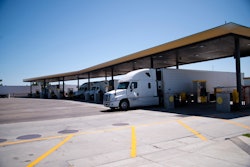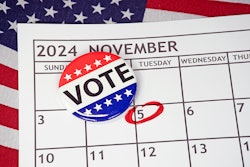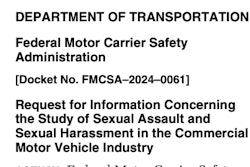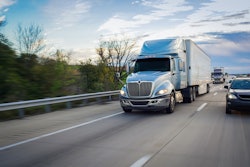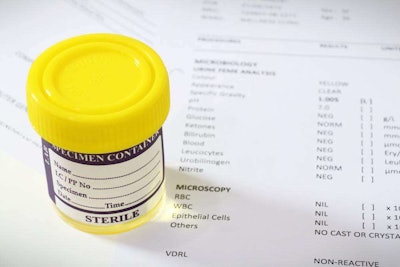
Update May 16, 2024: President Joe Biden confirmed that his administration is pursuing rescheduling marijuana to a Schedule III controlled substance with a proposed rulemaking from the Justice Department.
It's all over the news: President Joe Biden's Drug Enforcement Administration intends to make history by rescheduling marijuana from a Schedule I drug to Schedule III.
The move would act on a Department of Health and Human Services opinion, held since at least 1995, that the feds should reconsider marijuana. It would also line up with Biden's own statements that "no one should be in jail just for using or possessing marijuana" and that federal and state marijuana convictions should be pardoned.
Marijuana isn't becoming "legal" on a federal level for quite some time. In the trucking industry... it's important to be clear that absolutely nothing will change with marijuana policy for a minimum of a few years.
In trucking, it seems that almost every time a state legalizes marijuana, or a cannabis-related product mislabels their goods, or a new type of cannabis product hits the shelves ... people make mistakes and careers get ruined. Hard-luck tales of CDL drivers abound. Often, it's a situation of mistakenly ingesting THC (the active, intoxicating and illegal ingredient in marijuana) thinking it was CBD -- a legal, non-psychoactive supplement that's helped many with pain and anxiety.

[Related: CBD horror story: The indignity of 'Return to Duty' and Substance Abuse Professional program]
Still, in the face of the rule change and plenty uncertainty, neither the Federal Motor Carrier Safety Administration nor the Commercial Vehicle Safety Alliance would comment on how potential marijuana rescheduling might impact regulatory compliance, safety and roadside inspections.
We spoke to Brian Vicente, a leading attorney specializing in marijuana policy and regulation, to figure out exactly what rescheduling would mean.
"Since the 1970s, cannabis has been a Schedule I drug according to the federal government," Vicente said. The Schedule I status puts it alongside drugs like heroin, LSD, and ecstasy. "That means it has no medical value and a high potential for abuse."
The Biden DEA's moves toward rescheduling cannabis to "a Schedule III controlled substance," Vicente said, "means it has a known medical value and lower standard for abuse."
Former DEA Administrator Asa Hutchinson told Fox News that's "not a surprise" and in fact "reflects the reality" of cannabis use today.
"Right now, marijuana has a higher-level classification than fentanyl and methamphetamine -- the two drugs driving America's overdose epidemic," Biden wrote in announcing the changes on May 16. "That just doesn't add up."
Rescheduling marijuana to Schedule III alongside drugs like Ketamine and barbiturates doesn't mean it will be legal. It's only a single move in that vague direction, and the next step is one trucking knows well.
"This is an administrative process at the White House for the next 60-90 days that will essentially allow people to comment and litigate this issue, whether cannabis has medical uses," Vicente said. "And I do believe that the case is good and they will say cannabis is good."
That's right, the OMB will post the cannabis rescheduling proposal for public comment, just as trucking regulations come up for public comment. Vicente encouraged trucking industry stakeholders to comment when the time comes via Regulations.gov.
[Related: Here's proof your input can be effective in changing regulation -- for the better]
For now, even if the issue passes federal review, marijuana still doesn't become legal generally, and still presents a lot of problems for CDL truck drivers and their careers. "Essentially this is a strong symbolic move that the federal government is taking these steps towards legalization," something that will "make cannabis markets function better," said Vicente.
If marijuana does get rescheduled to the Schedule III class, he added, the process to get a valid marijuana prescription is "not overnight."
"Interested companies can then move through clinical drug trails, which takes years," said Vicente. That's despite the fact that "many people are already using cannabis in 24 legal states and 40 states" who allow medical marijuana use. In some medical use states, local medical authorities can hand out prescriptions for marijuana pretty liberally, but don't expect that to be the case when it goes federal.
But rescheduling invites a review from the Food and Drug Administration. Vicente speculated that "when and if these big companies find a way through the clinical process to support prescription for some type of cannabis -- it could be a dropper or something -- then truck drivers could potentially get that prescription."
Truckers might need more than a prescription, perhaps even a letter from their doctor saying the drug will not impact their driving. Federal regulations generally require docs' signoff for use of any scheduled controlled substance.
A 2022 study suggested marijuana doesn't make people much worse at driving, especially once they get used to it. According to that study, people high on marijuana "tend to compensate for their impairment by slowing down and driving more cautiously," but "experienced marijuana users show virtually no functional impairment while driving under the influence of THC alone."
Still, Vicente said that the particular attributes of marijuana make it a difficult regulatory and operational issue. "FDA's process is not really focused on getting botanical drugs to market," he said. "Generally they're approving pills that are pharmaceutically created. There will be some hurdles there."
The complications don't end there. Alcohol, heroin, cocaine, methamphetamine, crack, fentanyl and PCP are all water-soluble, meaning you can't really test positive on a urine test for these drugs more than three days out from when the drug was ingested.
Marijuana, ever the oddball, binds to fat cells, meaning you can test positive for marijuana up to 30 days after use, and that people with more fat tend to hang on to the drug longer in their system.
"Almost any drug test will not differentiate between active THC verse inactive," said Vicente, who has represented people in driving under the influence cases where the substance in question was marijuana. There "are drug tests that do that, they are simply more expensive." Many in trucking have called for a "weed breathalyzer" that can answer the important question of whether someone is currently high on the drug -- or if they just smoked some two weeks ago at a barbecue, far from the driver's seat of a Class 8 truck.
Given how quickly rules are changing on cannabis, Vicente emphasized, there's a clear case to be made that "the state and employers need to essentially have more sophisticated testing."
[Related: Can truck drivers use CDB? All you need to know about cannabis, hemp, testing and the clearinghouse]
Vicente pointed out that with 144,000 drug and alcohol clearinghouse tests positive for marijuana, more than all other substances combined, "a lot of people are losing their jobs, and a lot of people are not entering the industry" due to marijuana laws, he said. Marijuana "stays in the system in an inactive way." If FMCSA and the Department of Transportation "care about safety on the road, they should be taking steps to show that drivers are under the influence, not detecting metabolized cannabis" that can be weeks old.
In 2010, the U.S. saw nearly one million marijuana arrests. By 2023, that number had sunk to about a quarter of a million. Vicente said in states with legal weed, arrests rarely happen when people possess more marijuana than legal limits allow. In New York City, unlicensed marijuana dispensaries might outnumber subway stations, selling unregulated products from across state lines. In gas stations across the country, marijuana derivatives and CBD products (which might contain enough THC to get you fired from your job) sit in glass displays behind perhaps a hundred thousand or more counters.
In short, the entire nation has mellowed on marijuana, and now a wide majority of consumers can enjoy marijuana without fear of criminal penalty. For CBD users who don't hold CDLs, there's almost nothing to worry about from state or federal authorities.
But drivers, stay away. If you hear some rumor about weed becoming legal or rescheduling, push back. You're more likely to legally pull a reefer of marijuana-infused soda cross country than to pull on a joint without fear of career repercussions for the next few years.
Read next: Marijuana legalization, trucking, and the future of drug testing





